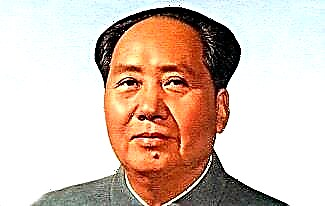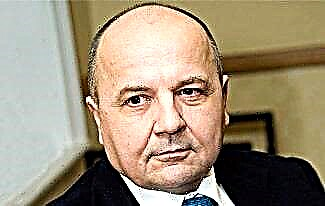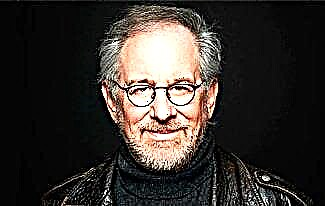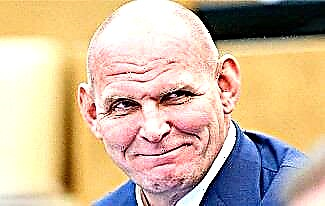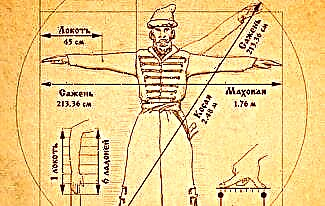Francis Bacon (1561-1626) - English philosopher, historian, politician, lawyer, founder of empiricism and English materialism. He was a supporter of an exclusively justified and evidence-based scientific approach.
The scholastics opposed dogmatic deduction with the inductive method based on the rational analysis of experimental data.

There are many interesting facts in the biography of Francis Bacon, which we will talk about in this article.
So, here is a short biography of Bacon.
Francis Bacon biography
Francis Bacon was born on January 22, 1561 in Greater London. He grew up and was raised in a wealthy family. His father, Sir Nicholas, was one of the most influential nobles in the state, and his mother, Anne, was the daughter of the humanist Anthony Cook, who raised King Edward of England and Ireland.
Childhood and youth
Francis's personality development was seriously influenced by his mother, who had an excellent education. The woman knew ancient Greek, Latin, French and Italian, as a result of which she translated various religious works into English.
Anna was a zealous Puritan - an English Protestant who did not recognize the authority of the official church. She was intimately acquainted with the leading Calvinists with whom she corresponded.
In the Bacon family, all children were encouraged to scrupulously research theological doctrines as well as adhere to religious practices. Francis had good mental abilities and a thirst for knowledge, but he was not very healthy.
When the boy was 12 years old, he entered the College of the Holy Trinity in Cambridge, where he studied for about 3 years. Since childhood, he was often present during conversations on political topics, since many well-known officials came to his father.
An interesting fact is that after graduating from college, Bacon began to speak negatively about the philosophy of Aristotle, believing that his ideas were good only for abstract disputes, but did not bring any benefit in everyday life.
In the summer of 1576, thanks to the patronage of his father, who wanted to prepare his son for serving the state, Francis was sent abroad as part of the retinue of the English ambassador to France, Sir Paulet. This helped Bacon gain extensive experience in the field of diplomacy.
Politics
After the death of the head of the family in 1579, Francis experienced financial difficulties. At the time of his biography, he decided to study law at a barrister school. After 3 years, the guy became a lawyer, and then a member of parliament.
Until 1614, Bacon actively participated in debates at sessions of the House of Commons, demonstrating excellent oratory. From time to time he prepared letters to Queen Elizabeth 1, in which he tried to objectively reason about a particular political situation.

At the age of 30, Francis becomes an advisor to the Queen's favorite, the Earl of Essex. He showed himself to be a true patriot because when in 1601 Essex wanted to carry out a coup d'etat, Bacon, being a lawyer, accused him of high treason in court.
Over time, the politician began to increasingly criticize the actions of Elizabeth 1, which is why he fell into disgrace of the Queen and could not count on promotion up the career ladder. Everything changed in 1603, when Jacob 1 Stuart came to power.
The new monarch praised Francis Bacon's service. He honored him with the knighthood and titles of Baron of Verulam and Viscount of St Albans.
In 1621, Bacon was caught taking bribes. He did not deny that people, whose cases he handled in the courts, often gave him gifts. However, he stated that this did not affect the course of the proceedings. Nevertheless, the philosopher was stripped of all posts and even forbidden to appear at court.
Philosophy and teaching
The main literary work of Francis Bacon is considered "Experiments, or moral and political instructions." An interesting fact is that it took him 28 years to write this work!
In it, the author reflected on the many problems and qualities inherent in man. In particular, he expressed his ideas about love, friendship, justice, family life, etc.
It is worth noting that although Bacon was a talented lawyer and politician, philosophy and science were his main hobbies throughout his life. He was critical of Aristotelian deduction, which was extremely popular at the time.
Instead, Francis proposed a new way of thinking. Pointing to the deplorable state of science, he stated that until that day all scientific discoveries were made by chance, and not methodically. There could be many more discoveries if scientists used the right method.

By method, Bacon meant the path, calling it the main means of research. Even a lame man walking on the road will overtake a healthy person running off-road.
Scientific knowledge should be based on induction - the process of logical inference based on the transition from a particular position to the general, and experiment - a procedure performed to support, refute or confirm a theory.
Induction receives knowledge from the surrounding world through experiment, observation and verification of the theory, and not from the interpretation, for example, of the same works of Aristotle.
In an effort to develop "true induction", Francis Bacon sought not only facts to support a conclusion, but also facts to refute it. Thus, he showed that true knowledge is derived from sensory experience.
This philosophical position is called empiricism, the ancestor of which, in fact, was Bacon. Also, the philosopher talked about the obstacles that can stand in the way of knowledge. He identified 4 groups of human errors (idols):
- 1st type - idols of the family (mistakes made by a person due to his imperfection).
- 2nd type - cave idols (errors arising from prejudice).
- 3rd type - the idols of the square (errors born due to inaccuracies in the use of the language).
- 4th type - theater idols (mistakes made due to blind adherence to authorities, systems or established traditions).
Francis's discovery of a new method of cognition made him one of the largest representatives of scientific thought of modern times. However, during his lifetime, his system of inductive cognition was rejected by representatives of experimental science.
Interestingly, Bacon is the author of a number of religious writings. In his works, he discussed various religious issues, severely criticizing superstitions, omens and denial of the existence of God. He stated that "a superficial philosophy inclines the human mind to atheism, while the depths of philosophy turn the human mind to religion."
Personal life
Francis Bacon was married at the age of 45. It is curious that his chosen one, Alice Burnham, was barely 14 years old at the time of the wedding. The girl was the daughter of the widow of London elder Benedict Bairnham.
The newlyweds legalized their relationship in the spring of 1606. However, no children were born in this union.
Death
In the last years of his life, the thinker lived on his estate, engaging exclusively in scientific and writing activities. Francis Bacon died on April 9, 1626 at the age of 65.
The death of the scientist came as a result of an absurd accident. Since he seriously investigated various natural phenomena, the man decided to conduct another experiment. He wanted to test to what extent the cold slows down the decay process.
Having bought a chicken carcass, Bacon buried it in the snow. After spending some time outdoors in winter, he caught a serious cold. The disease progressed so quickly that the scientist died on the 5th day after the start of his experiment.
Photo by Francis Bacon







